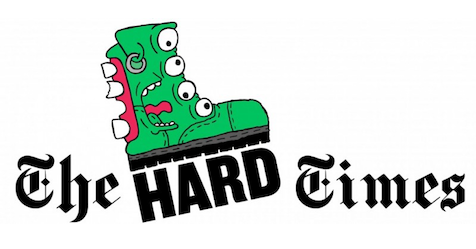QUINCY, Mass. — Local punk Jimmy Herrera is worried about his lack of Social Distortion records to play in an effort to impress his mechanic neighbor Ron Davis while they are hanging out, sources confirmed.
“I invited him as a gesture after he helped me fix a flat on the van,” stated Hererra. “Everything was going great at first. We drank a couple of beers and listened to ‘Live at the Roxy.’ He seemed to really be digging it, which was great because I need to get someone to fix our van’s alternator on the cheap. But after the third spin, it started to get a little awkward. I had to think of something else I could play but could only come up with that 1980s ZZ Top record I use as a coke tray at parties. ”
Davis, a longtime auto mechanic, runs a three-bay garage and has been dealing with strangers assuming he likes a very specific type of music for much of his professional life.
“Yeah, I like Social D as much as the next guy, but that’s not all I listen to,” said Davis, while unscrewing an oil filter from a 2005 VW Jetta. “I’m actually really into jazz and early blues. I’ve read a ton about the Great Migration and its impact on American popular music. But whenever someone learns that I’m a mechanic they throw on a Ted Nugent record and start talking about how much of a pain it is to replace their wiper blades. It’s a little insulting, to be honest.”
Dr. Joan Halifax, head of the Cultural Anthropology department at Stanford University, has written extensively about the difficulty American social classes have in interacting with one another.
“When we think of class in America, we often picture income or education,” said Halifax. “But in actuality, it really comes down to values and who we share them with. For instance, if one type of person really values hard work and traditional ideas of masculinity, it can be difficult for them to connect with someone who likes to bang poppers behind dumpsters at VFW shows and has literally stolen all of the silverware they own from Waffle Houses. When one party is part of a national labor union and the other has been in a band called Whiskey Dick for the last fifteen years, the chasm can be nearly impossible to overcome.”
Hererra has since gone on to purchase three new Molly Hatchet records from the local Goodwill in hopes of getting his band’s tour van a valid inspection sticker from Davis to replace their counterfeit one.




